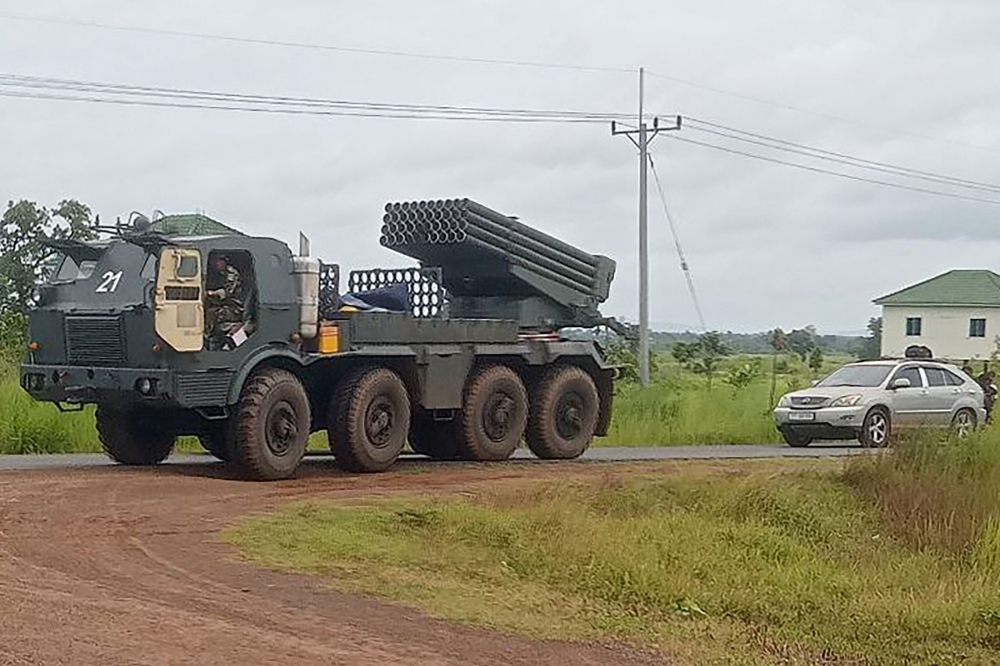
Mines, mistrust, and the mirage of Asean Unity: Why Cambodia–Thailand tensions are escalating again — Phar Kim Beng and Luthfy Hamzah
Thursday, 24 Jul 2025 3:11 PM MYT
JULY 24 — When three Thai soldiers were maimed by landmines near the tranquil hills of Chong Bok on July 16, few could have predicted how quickly the incident would spiral into a full-blown diplomatic standoff. But it has.
And the sudden escalation in tensions between Thailand and Cambodia reveals not just the fragility of bilateral ties, but the deeper structural failures of Asean in managing recurring border disputes that threaten regional stability.
At the heart of the crisis is a tragic yet dangerous development: over 100 newly-planted landmines—Russian-made PMN-2 anti-personnel devices—discovered within Thai territory.
The Thai military, shocked by the blast that injured their soldiers, quickly accused Cambodia of crossing into Thai soil and violating both international law and the Ottawa Convention, to which both countries are signatories. Cambodia’s retort was swift and unequivocal: the Thai troops had strayed into Cambodian land, and any explosion was likely due to unexploded ordnance from past conflicts.
But this is not just a tale of overlapping maps or murky topography.

A Cambodian BM-21 multiple rocket launcher returns from the Cambodia-Thai border as troops clash in Preah Vihear province on July 24, 2025. — AFP pic
The emotional fuse had already been lit in May 2025, when a firefight broke out between Thai and Cambodian forces, killing a Cambodian soldier. That clash took place near the Emerald Triangle, a notoriously contested region where Thailand, Cambodia, and Laos converge.
Through previous skirmishes in the 2008–2011 era had largely subsided, the ghosts of nationalism, colonial cartography, and military brinkmanship never truly disappeared.
Instead, they have been revived by political insecurities at home.
Under former Prime Minister Paetongtarn Shinawatra’s tenuous leadership in Thailand—shaken by internal dissent and the recent leak of a sensitive call with Cambodia’s former Prime Minister Hun Sen—has become entangled with border politics.
Cambodia’s new leader, Hun Manet, son of the very man embroiled in the leaked call, is also under pressure to assert national sovereignty and military strength. Thus, what began as a tragic mine incident has become the centrepiece of a nationalist contest for legitimacy.
The tragedy, however, extends beyond the personal losses and political theatre.
Civilians living along the border have been forced to suspend cross-border trade, cancel market days, and live in fear of triggering mines that should have never been there. Local livelihoods, already strained by Covid-19’s economic aftershocks, are now undermined by geopolitics disguised as territorial vigilance.
Even more troubling is Asean’s silence.
As always, the bloc’s timeworn principle of non-interference has rendered it inert in the face of looming conflict. Asean’s mechanisms—the Asean Regional Forum, the High Council of the Treaty of Amity and Cooperation—remain on paper but not in motion.
No urgent convening has occurred, no fact-finding mission dispatched, and certainly no collective voice raised to call for calm. In theory, Asean is supposed to be the custodian of regional peace and security. In practice, it watches from the sidelines.
Cambodia has now filed a case at the International Court of Justice (ICJ), attempting to internationalise the dispute. Thailand, predictably, has rejected the court’s jurisdiction, citing sovereignty and prior legal outcomes.
This legalistic joust may stretch into years while tensions on the ground continue to smoulder—fuelled by unresolved border demarcations and a bilateral relationship long haunted by history.
History matters. The Preah Vihear dispute, ruled upon by the ICJ in 1962 and revisited in 2013, remains a scar that never fully healed.
The people on both sides of the border have lived through previous rounds of artillery fire and minefields. The memory of war is not academic—it is intimate, lived, and feared.
That is precisely why this crisis cannot be allowed to fester.
If left unattended, it may embolden further militarisation. The Thai military has already begun reinforcing its patrols, while Cambodian troops remain on high alert.
A single misstep or miscommunication could lead to another fatal clash. In the age of drones, social media, and nationalist fervour, conflict can spread faster than diplomacy can contain.
The irony is that both Cambodia and Thailand are parties to peace treaties, members of the same regional community, and beneficiaries of decades of trade and tourism across their shared borders. Yet they are caught in a cycle of escalation and denial, enabled by Asean’s passivity and the international community’s distraction.
This is a moment for clarity.
Asean must urgently step in—not merely as a convener but as a mediator. It must deploy impartial monitors, perhaps in coordination with the UN Mine Action Service, to verify the landmine claims.
A joint investigation can provide the transparency needed to defuse the blame game. More importantly, both nations must recommit to demarcating their shared boundary with integrity and technical precision, based on agreed maps and international norms—not on emotive political posturing.
Ultimately, no dispute is worth the life of a soldier, the foot of a young man, or the daily fear of a rice farmer navigating his land.
Borders may define countries, but the wisdom to prevent war defines statesmanship. It is time for both Thailand and Cambodia—and Asean—to choose wisdom.
* Phar Kim Beng is Professor of Asean Studies and Director of the Institute of Internationalization and Asean Studies (IINTAS). Luthfy Hamzah is a research fellow at IINTAS
Hello Hamas LOVER ASEAN CHAIRMAN - PMX Anwar Ibrahim....... It's ALL Falling Apart.....All Asean doing Direct Nego with Trump....MALAYSIA MALU DAN DI LUDAH ..... Perang, Bencana, Tariff LAGI MAHU SEMUA ASEAN Support HAMAS....PI MAMPUSLAH.....HAMAS Killed Thai and Phillipines people too on OCT 7..... BUT Satan HAMAS LOVING MALAYSIA SEE NO WRONG......Padan MUKA KENA SMOG TO DAMAGE YOUR LUNGS....WAR TO MAKE YOUR CHAIRMANSHIP A SH*T!.... Alhamduilah the LIES OF THE SUPREMACIST FACIST HAMAS LOVING RELIGION OF DEATH & LIES.... PROFESSOR LOGIC!!
ReplyDelete